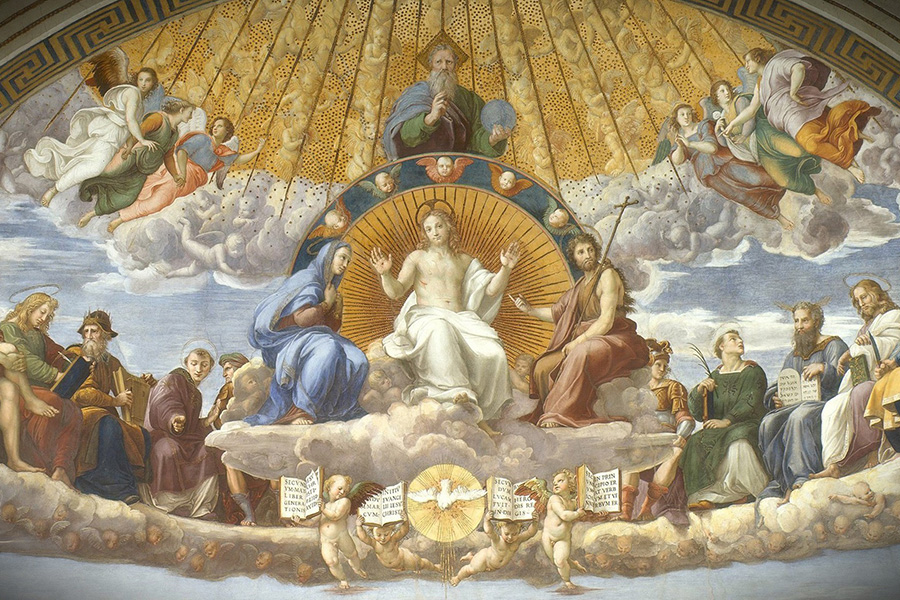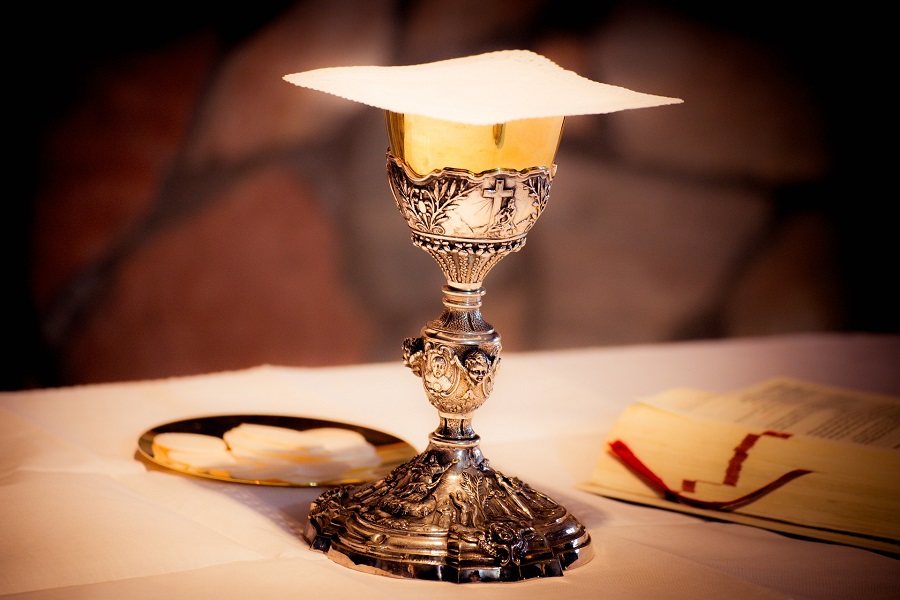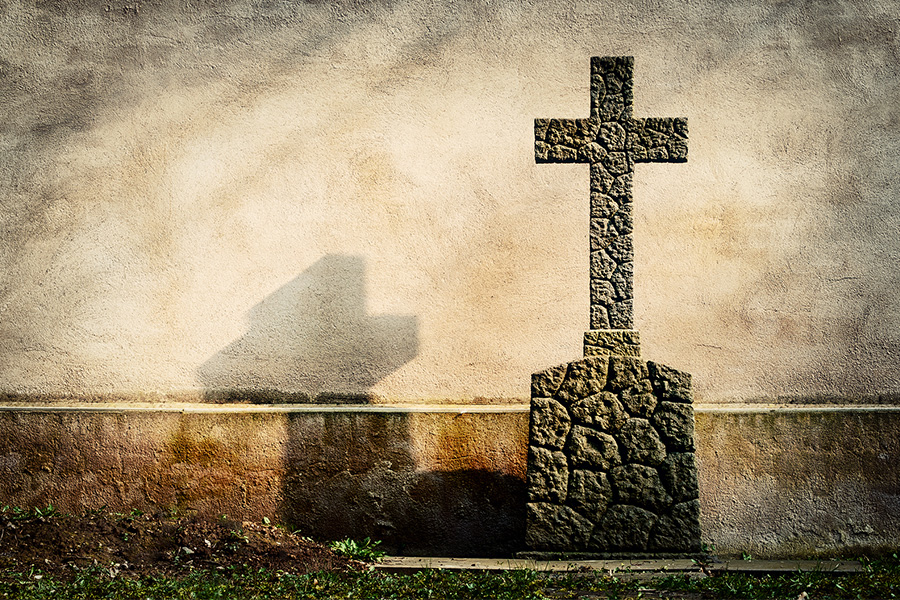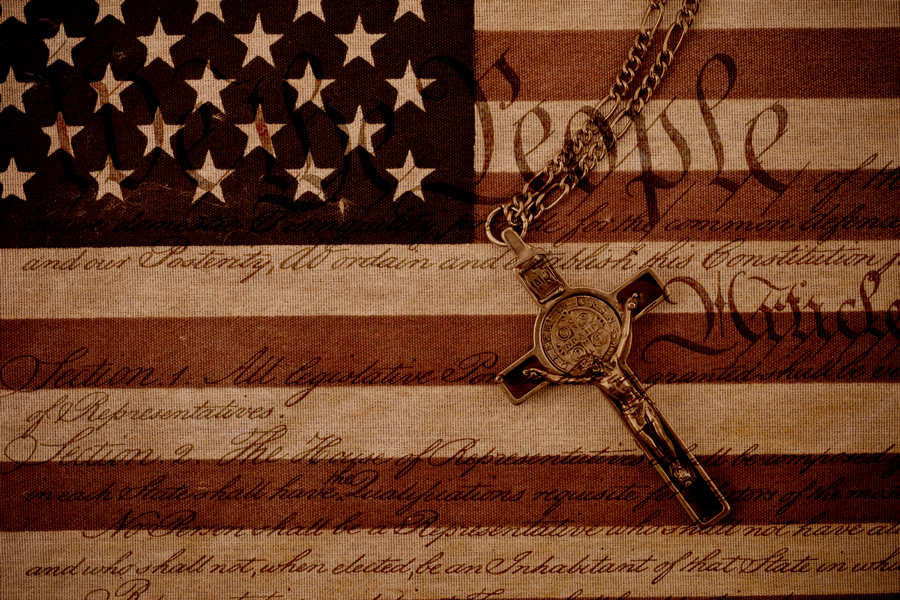Corpus Christi Blog

Heresies (Part 2 of 2)
07-30-2023Weekly ReflectionJen Arnold, M.A. in Theology and CatecheticsLast week we looked at what defines a heresy and how the church has used heresies as opportunities to clarify and solidify doctrines so that we can be confident in the truth. We also examined the heresy of Gnosticism, which held many false beliefs, and how St. Irenaeus was able correct them through his writings.
Today, we’ll examine the heresies of Arianism and Nestorianism.
READ MORE
Heresies (Part 1 of 2)
07-23-2023Weekly ReflectionJen Arnold, M.A. in Theology and CatecheticsI often write about how the Church’s authority is important, especially when it comes to sorting out and teaching the Truths of the Faith, since we often get it wrong when we try to do it ourselves. You can find an in -depth examination on the three sources of authority in the Catholic Church – Scripture, Tradition, Magisterium – on my website. In this two-part series, I will explain yet another reason why we need the authority of the Church to protect the truth of who Jesus is and what we believe about Him: heresy.
READ MORE
Occultism
07-16-2023Weekly ReflectionJen Arnold, M.A. in Theology and CatecheticsWe live in a society today where we see an ever-increasing rejection of God in a variety of ways. That said, turning away from God is actually contrary to human nature. “The desire for God is written in the human heart, because man is created by God and for God; and God never ceases to draw man to himself” (CCC #27). We, as a human race, inherently want to know God and all the things that come with knowing Him. Without God, in our weak humanity, we attempt to understand things in ways which cause us to remain unsatisfied and longing for more.
READ MORE
Cremation and Scattering Remains
07-09-2023Weekly ReflectionJen Arnold, M.A. in Theology and CatecheticsThe Catholic Church has always held a high regard for the human body. Jesus, the Word of God, took on human flesh to dwell among us and, in doing so, He elevated the dignity of all our bodies. Our bodies are so valuable to our very being that, at the end of time, our bodies will be resurrected to be reunited with our souls for eternity. Angels, who are higher beings than humans in the created order, were not given bodies and will only ever be pure spirit. In her diary, St. Faustina said, “If the angels were capable of envy, they would envy us for two things: one is the receiving of Holy Communion, and the other is suffering.” In other words, because they lack bodies, they are unable to participate in the life and sacrifice of Jesus Christ, which is a unique gift reserved just for us humans. For this reason, I would like to examine the Church’s teaching on a practice very common in our world today – the scattering or keeping of the cremated remains of loved ones.
READ MORE
Religious Liberty
07-02-2023Weekly ReflectionJen Arnold, M.A. in Theology and CatecheticsAs we celebrate our freedom this week on Independence Day, July 4th, it is a good time to see what the Catholic Church has had to say about religious liberty over the course of its history. As we understand it today, religious liberty is a fundamental human right. Every man should be free to seek the truth and express his understanding of the truth through his religion. However, because the Church exists in an ever-changing world, her perspectives of religious liberty and discussions regarding freedom have evolved over the centuries.
READ MORELast week we looked at what defines a heresy and how the church has used heresies as opportunities to clarify and solidify doctrines so that we can be confident in the truth. We also examined the heresy of Gnosticism, which held many false beliefs, and how St. Irenaeus was able correct them through his writings.
Today, we’ll examine the heresies of Arianism and Nestorianism.
READ MORE